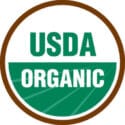Farmers, Consumers and Public Interest Groups Square off Against Corporate Interests
ALBUQUERQUE, NM: Passions flared at the semiannual meeting of the USDA's National Organic Standards Board (NOSB), last week in Albuquerque, New Mexico, as the federal advisory panel approved a number of synthetic ingredients for use in organics, over the objection of the majority of industry participants.
The meeting came on the heels of the release of a report by an organic industry watchdog, The Cornucopia Institute, outlining corrupt practices in the constitution of the board and their past approval processes. The NOSB, created by Congress, is legally mandated to ensure that no substances are allowed in organic foods that pose a threat to human health or the environment.
The most controversial material approved at the meeting was carrageenan, a stabilizer and thickener synthesized from seaweed. Carrageenan has been shown to trigger gastrointestinal inflammation, which is known to cause serious intestinal disease, including cancer. "Degraded carrageenan," which is present in all food-grade carrageenan, is classified as a "possible human carcinogen" by the International Agency for Research on Cancer of the World Health Organization (WHO) and the National Academy of Science in United States.
 "If
there was ever a poster child for an ingredient that has no business
being in organic food, or any food for that matter, it's carrageenan,"
said Charlotte Vallaeys, Director of Farm and Food Policy at Cornucopia.
"If
there was ever a poster child for an ingredient that has no business
being in organic food, or any food for that matter, it's carrageenan,"
said Charlotte Vallaeys, Director of Farm and Food Policy at Cornucopia.
In their report, The Organic Watergate, issued earlier in May, Cornucopia documented what they called "systemic corruption" at the USDA that resulted in what was characterized as biased technical reviews and approvals of synthetics for use in organics. Their findings illustrated that the materials were being evaluated by food scientists working directly for corporate agribusiness and then approved by a body (the NOSB) illegally stacked with agribusiness representatives.
"The beauty of the law that was passed by Congress, the Organic Foods Production Act of 1990 (OFPA), was that the majority of 15 NOSB seats were reserved for farmers, consumer advocates, environmentalists and others public interest representatives as a balance to corporate power," said Mark Kastel, The Cornucopia Institute's Codirector. "The law has been ignored and the organic chickens are now coming home to roost--undermining the integrity of the organic label."
"The Organic Trade Association (OTA), an industry lobby group, and its powerful members, can now get approval for virtually anything they want. It has turned the entire regulatory process into a mockery," Kastel added.
The Cornucopia Institute, which is preparing to challenge the inappropriate board composition in federal court, also just filed a formal complaint with the USDA's Office of Inspector General (OIG), Ms. Phyllis Fong, asking her to investigate the organization's allegations.
In their complaint, they used NOSB member Carmela Beck as an example. Ms. Beck was appointed by USDA Sectary Tom Vilsack to serve on one of the seats reserved for an individual who "owns or operates" an organic farm. Ms. Beck neither owns nor operates an organic farm, but is a full-time employee of a giant privately-owned agribusiness, Driscolls, the largest conventional and organic berry producer in the United States.
"This is a clear-cut violation of OFPA, in which Congress charged the USDA with protecting organic stakeholders and consumers," explained Kastel.
Cornucopia's letter to the OIG also cited direct conflicts of interest on the board that should have caused certain members to recuse themselves from voting on carrageenan"s relisting on the National List of approved substances in organics.
Ms. Wendy Fulwider, a full-time employee at the CROPP Cooperative (Organic Valley) and a NOSB member, appropriately disclosed a conflict of interest. Organic Valley had sent a representative to publicly lobby the board to approve carrageenan, citing Organic Valley's use of the material in soymilk, whipping cream and chocolate milk. In addition, NOSB members reported direct contact from Organic Valley's CEO, who had called them individually to lobby for their vote. And Organic Valley submitted written comments in advance of the meeting advocating that the board vote for the synthetic material.
However, the staff at the USDA's National Organic Program ruled that Ms. Fulwider's disclosure did not constitute a conflict of interest that required her to abstain from voting.
"If the direct economic impact of this vote on Organic Valley, and their covert and overt lobbying for carrageenan, does not constitute a conflict of interest, then nothing presented to this board will ever disqualify a member from voting," lamented Cornucopia's Kastel. "The fix is in."
At the meeting, Michael Potter, CEO of Clinton, Michigan based Eden Foods, illustrated that companies do not need to sacrifice foundational organic values in order to compete in the $30+ billion industry. Potter, whose company is a respected and leading producer of diversified organic groceries, pleaded with the NOSB to act as a "gatekeeper" for the authenticity of organic food. He asked the board to employ the "Precautionary Principle" and to "always be certain that what they do is appropriate for organic food."
(Note: You can view every article as one long page if you sign up as an Advocate Member, or higher).



